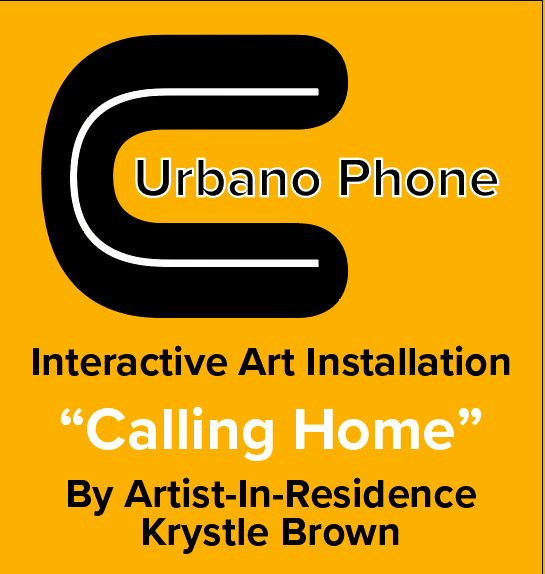How can democracy exist when people cannot afford housing?
Boston is one of the most economically unequal cities in the United States, placing at number 7 in the country with a 14:1 ratio between the top 5 percent and the bottom 20 percent. The Greater Boston area is also the 16th highest cost of living of 383 metro areas defined by the Census Bureau.
The housing crisis is combined with rising inequality, which has locked out many middle-class and low-income Bostonians from owning a home - a pathway to financial stability. Democracy cannot exist where inequality festers.
Calling Home is a response to this emergency.
Organized and facilitated by Boston/Salem-based artist Krystle Brown, Calling Home is made with direct support from the Urbano Project. The participants in this project range in age, race, ethnicities, gender identities, sexual orientations, and live throughout the Greater Boston area. Some are recent newcomers to Boston, some immigrated here when they were young, and others can trace their roots back to this area for generations.
Throughout our ten weeks together, we have faced illness, school deadlines, family support issues, work commitments, and unexpected death. Together, we have observed Egleston Square’s psychogeography, beautiful murals, inaccessible “public” parks, and a very friendly black cat. We have shared personal stories of mental health in isolation, leaving home and family, and building community in a time where community is hard to find.
Central to our workshops and meetings have been: “How much longer can I afford to live here?”, “How can I help my new community?”, “What is a solution here?”
This multi-faceted problem requires multi-faceted solutions, starting from the federal government all the way down to you.
The solution is more housing. It is more affordable housing. It is more public housing. It is better and expanded public transportation. It is some form of rent control. Not just here in Boston but across the Commonwealth. And across the United States.
What is offered through Calling Home is a chance to listen. Through these nine stories, you may hear some parts of our own life repeated in others' voices and words. We are not alone; our struggles are common. Together, through community, we are stronger than any force than can pull us apart.
This project is dedicated to my late mother, Kathleen Ann Bowen Brown, who grew up poor in Dorchester, Mattapan, and Roslindale.
And to the late Danielle J. Abrams, who told me, “you always shoot from the hip, and that’s a good thing.”
My deepest thanks to:
Andre Weiss, Flavia DeSousa, Jill Rosati, Kyle Hart, L Ande Smith, Michal Shilo, Nabila Anandira, Sanjana Prudhvi, Sarah Xu, Aisha Donna, María Fernanda Mancera Pérez, Gina Lindner, Stella Aguirre McGregor, Guy Harris and the Egleston Square Library, Cara Solomon and Everyday Boston, Denise Delgado, Darin Murphy, and my husband Andrew Goldman.
“Urbano Phone” logo by Kyle Hart.
Spanish translations by Gabriel Sosa.

